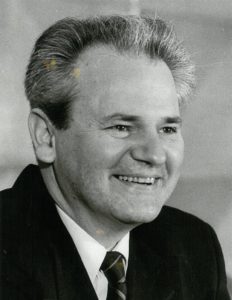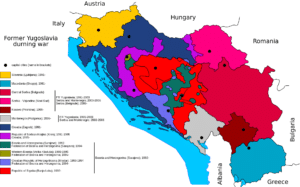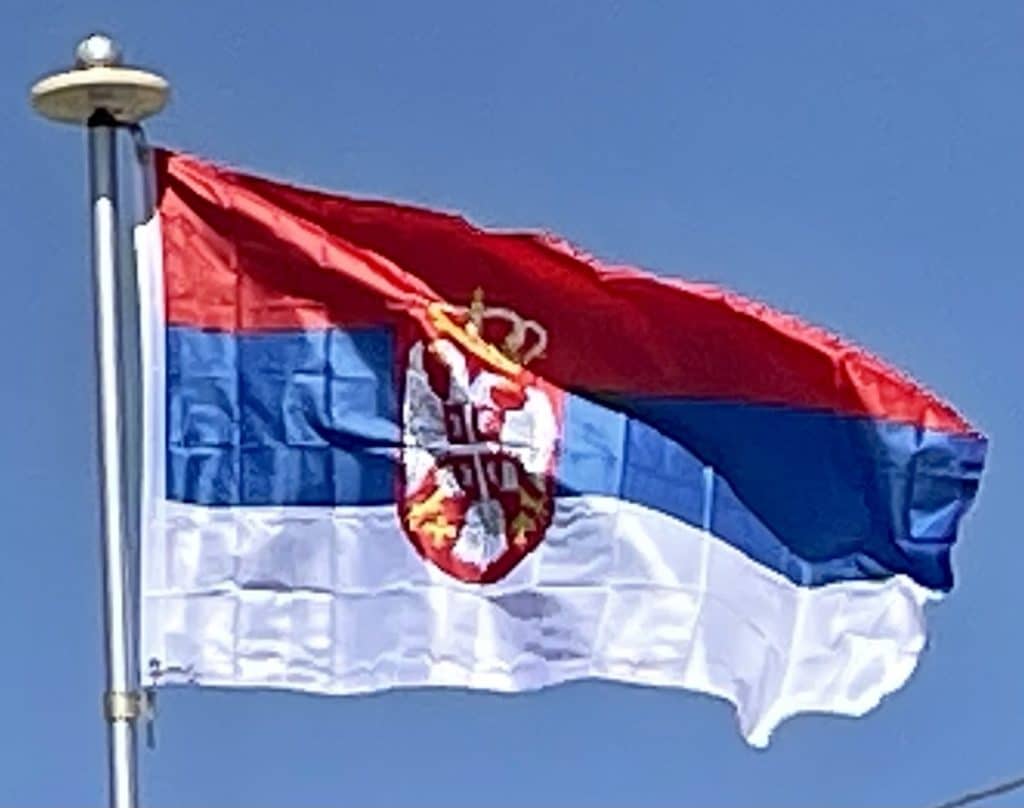Belgrade, the capital of SFR Yugoslavia and SR Serbia, hosted the first Non-Aligned Movement Summit in September 1961, as well as the first major gathering of the Organization for Security and Co-operation in Europe (OSCE) with the aim of implementing the Helsinki Accords from October 1977 to March 1978. The 1972 smallpox outbreak in SAP Kosovo and other parts of SR Serbia was the last major outbreak of smallpox in Europe since World War II.
Breakup of Yugoslavia and Political Transition:
In 1989, Slobodan Milošević rose to power in Serbia. Milošević promised a reduction of powers for the autonomous provinces of Kosovo and Vojvodina, where his allies subsequently took over power, during the Anti-bureaucratic revolution. This ignited tensions between the communist leadership of the other republics of Yugoslavia, and awoke ethnic nationalism across Yugoslavia that eventually resulted in its breakup, with Slovenia, Croatia, Bosnia and Herzegovina, and Macedonia declaring independence during 1991 and 1992. Serbia and Montenegro remained together as the Federal Republic of Yugoslavia (FRY).

Fueled by ethnic tensions, the Yugoslav Wars (1991–2001) erupted, with the most severe conflicts taking place in Croatia and Bosnia, where the large ethnic Serb communities opposed independence from Yugoslavia. The FRY remained outside the conflicts, but provided logistic, military and financial support to Serb forces in the wars. In response, the UN imposed sanctions against Serbia which led to political isolation and the collapse of the economy (GDP decreased from $24 billion in 1990 to under $10 billion in 1993). Following the rise of nationalism and political tensions after Slobodan Milošević came to power, numerous anti-war movements developed in Serbia and many anti-war protests were held in Belgrade. Multi-party democracy was introduced in Serbia in 1990, officially dismantling the one-party system. Critics of Milošević stated that the government continued to be authoritarian despite constitutional changes, as Milošević maintained strong political influence over the state media and security apparatus. When the ruling Socialist Party of Serbia refused to accept its defeat in municipal elections in 1996, Serbians engaged in large protests against the government.

In 1998, continued clashes between the Albanian guerilla Kosovo Liberation Army and Yugoslav security forces led to the short Kosovo War (1998–99), in which NATO intervened, leading to the withdrawal of Serbian forces and the establishment of UN administration in the province. After the Yugoslav Wars, Serbia became home to highest number of refugees and internally displaced persons in Europe.
After presidential elections in September 2000, opposition parties accused Milošević of electoral fraud. A campaign of civil resistance followed, led by the Democratic Opposition of Serbia (DOS), a broad coalition of anti-Milošević parties. This culminated on 5 October when half a million people from all over the country congregated in Belgrade, compelling Milošević to concede defeat. The fall of Milošević ended Yugoslavia’s international isolation. Milošević was sent to the International Criminal Tribunal for the former Yugoslavia. The DOS announced that FR Yugoslavia would seek to join the European Union. In 2003, the Federal Republic of Yugoslavia was renamed Serbia and Montenegro; the EU opened negotiations with the country for the Stabilisation and Association Agreement. Serbia’s political climate remained tense.
Modern Republic of Serbia:
On 21 May 2006, Montenegro held a referendum to determine whether to end its union with Serbia. The results showed 55.4% of voters in favor of independence, which was just above the 55% required by the referendum. On 5 June 2006, the National Assembly of Serbia declared Serbia to be the legal successor to the former state union. The Assembly of Kosovo unilaterally declared independence from Serbia on 17 February 2008. Serbia immediately condemned the declaration and continues to deny any statehood to Kosovo. The declaration has sparked varied responses from the international community, some welcoming it, while others condemned the unilateral move. Status-neutral talks between Serbia and Kosovo-Albanian authorities are held in Brussels, mediated by the EU.
